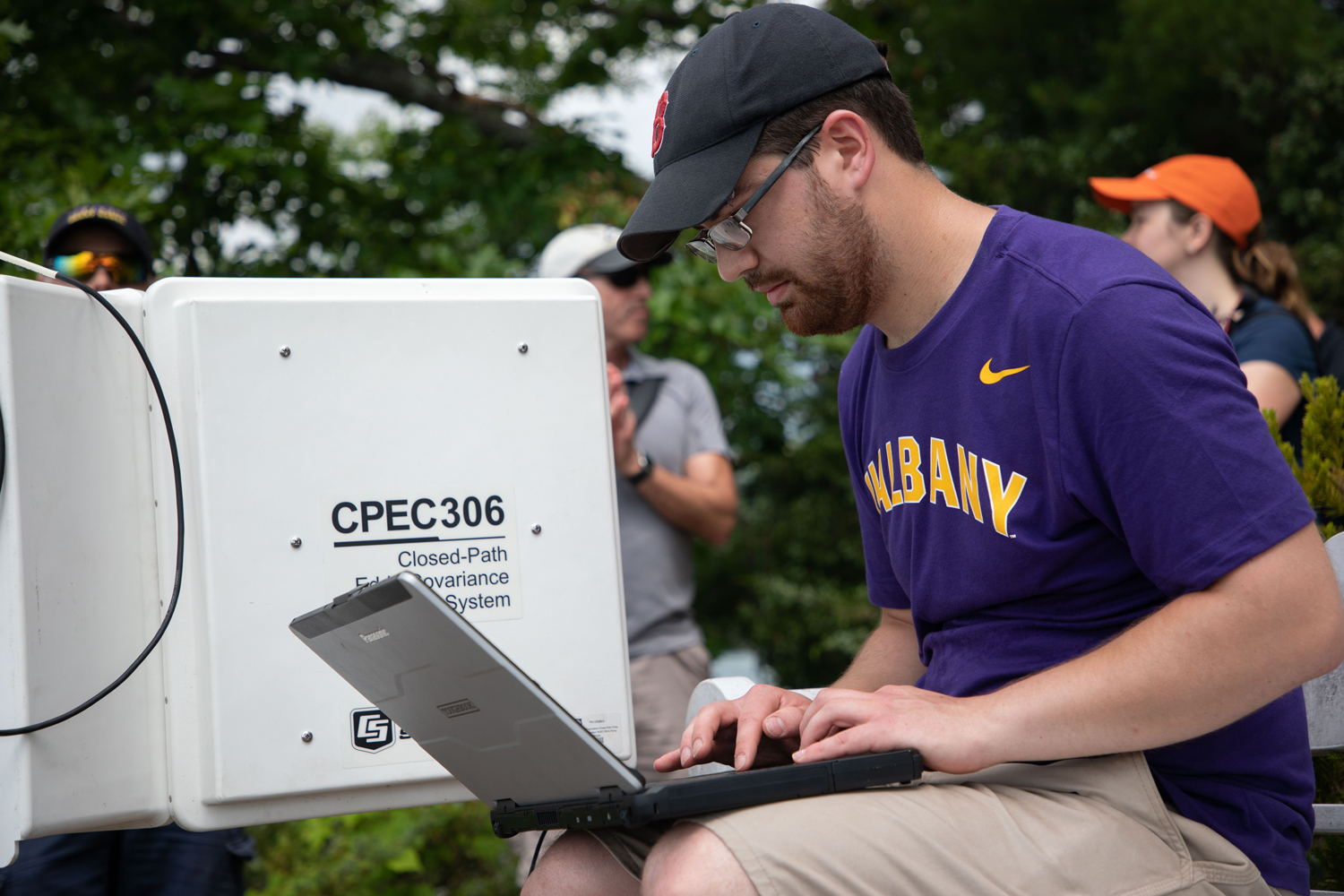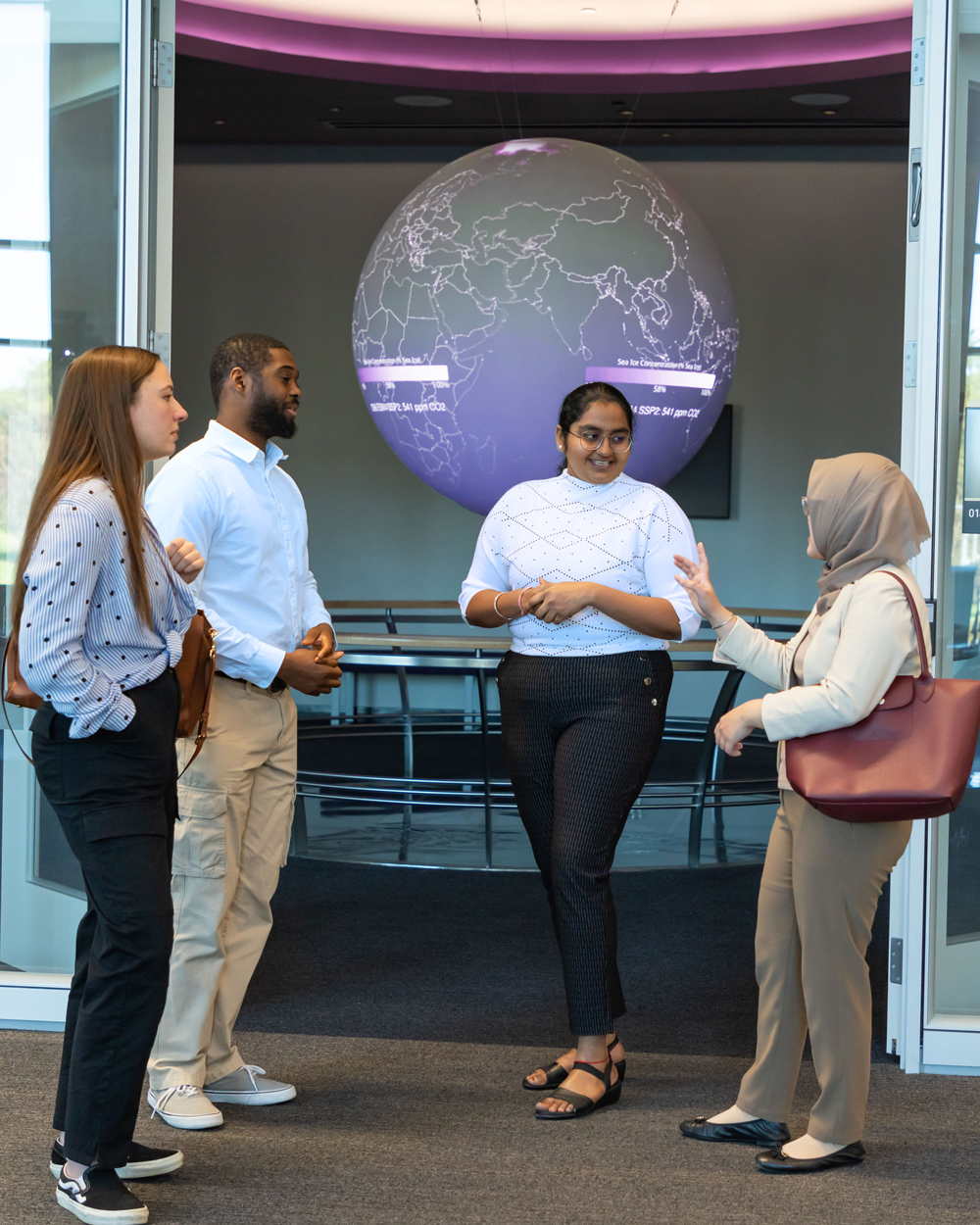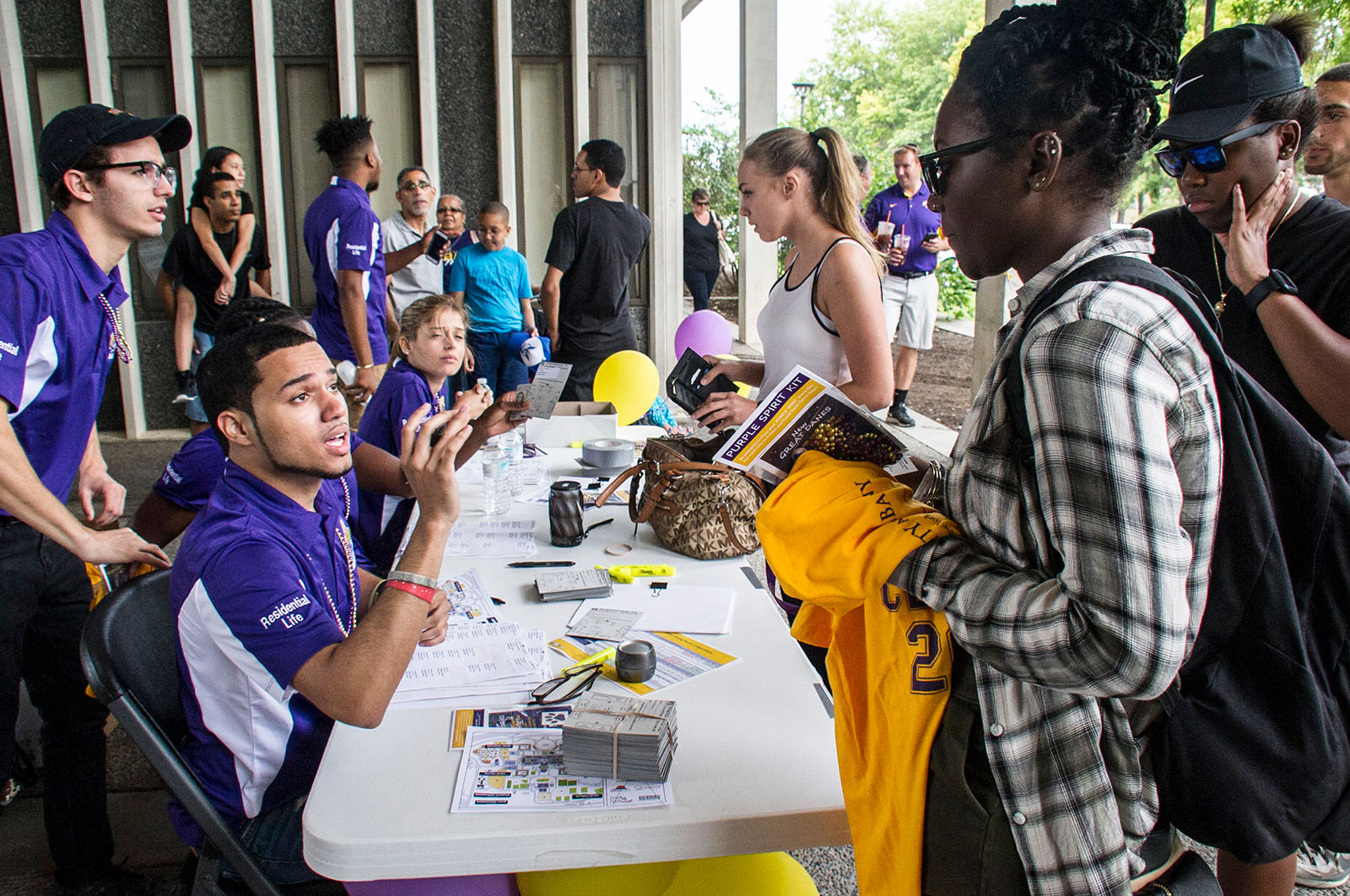Learning objectives that UAlbany students are expected to attain through their course of study within their academic program.
A student completing the BS degree in Climate Science is expected to be able to:
- Effectively communicate with colleagues or others via clear and efficient writing or presentation technique.
- Identify and describe the various components comprising the Earth's climate system, including recognizing key aspects of these components' interactions and feedback loops.
- Perform quantitative analyses specific to climate problems, including assessing relevant parameters and interpreting their trends in space and/or time.
- Apply field methods, data, concepts and models to the solution of problems in the climate sciences.








